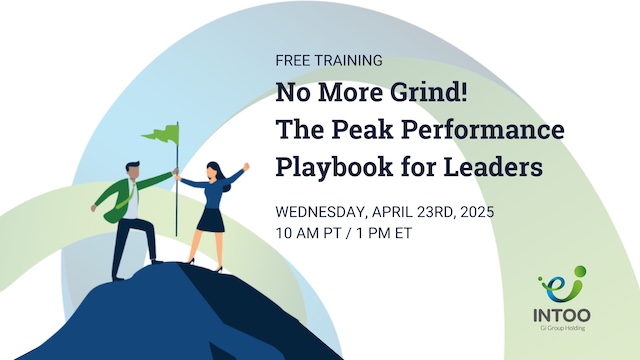Career milestones are significant achievements or benchmarks that mark progress in an individual’s professional journey. These milestones can include promotions, acquiring new skills, completing major projects, or transitioning into leadership roles. They serve as indicators of growth, reflecting an employee’s development, contributions, and overall career trajectory.
In this article, we explore the importance and benefits of setting career milestones at work. Establishing clear goals and recognizing achievements can motivate and provide a sense of direction. Understanding the role of career milestones can help organizations encourage their employees’ continuous growth and job satisfaction
Benefits of Career Milestones in the Workplace
Career milestones provide employees with purpose and a clear path to achievement. When employees set and achieve milestones—such as obtaining a certificate, leading a special project for the first time, or advancing into a new role—they gain confidence in their abilities and remain engaged in their roles. This planned forward movement also helps individuals align their personal career aspirations with organizational goals, further benefitting the company. Additionally, career milestones encourage continuous learning and development, ensuring that employees remain competitive and adaptable as the business evolves and grows.
For companies, recognizing career milestones improves employee retention and overall workplace morale. When organizations support employees in achieving professional goals, they cultivate a positive work culture. This not only reduces turnover costs but also improves performance and innovation within the company. Furthermore, a culture that values career progression attracts top talent.
Ultimately, career milestones benefit both employees and employers by driving growth, stability, and long-term success.
Helping Employees Identify Career Milestones to Pursue
Identifying meaningful career milestones is essential for guiding employees toward growth and success. One of the first steps in this process is encouraging employees to reflect on their career aspirations and long-term goals. Managers and HR professionals can facilitate this by conducting career development discussions that help employees assess their strengths, interests, and areas for improvement. By understanding where they want to go in their careers, employees can set realistic and motivating milestones that align with both personal and organizational objectives.
Another approach is to break long-term career goals into smaller, achievable steps. Each of these steps can be a milestone on the way to achieving those larger goals. Providing access to mentorship, training programs, and coaching can further support employees in reaching these milestones. Regular performance reviews and check-ins also help employees stay on track, allowing for adjustments and refinements as needed.
In addition, a positive workplace culture that recognizes and celebrates career milestones can be motivating to employees. Recognition programs, promotions, and opportunities for advancement reinforce the value of progress and encourage employees to take an active role in their career development. By creating an environment where milestones are acknowledged and rewarded, companies can inspire employees to stay engaged and committed to their growth.
The following section will explore specific examples of career milestones that employees can work toward, providing concrete benchmarks that can help guide professional development.
6 Examples of Career Milestones Employees Can Achieve
Career milestones serve as important benchmarks in an employee’s professional journey, marking progress and accomplishments along the way. These achievements not only help an individual move forward in their career path but also contribute to the organization’s success. Below are six key career milestones that employees pursue:
1. Earning a promotion
A promotion is a significant milestone that demonstrates career progression and recognition of an employee’s hard work. Advancing to a higher position often comes with increased responsibilities, leadership opportunities, and greater compensation. Employees who achieve this milestone typically showcase strong performance, a commitment to growth, and the ability to take on new challenges. This step is crucial in developing long-term career success and professional credibility.
2. Completing a major project
Delivering a successful project is a defining career moment that showcases an employee’s expertise, problem-solving skills, and ability to meet organizational goals. Whether leading a team, implementing a new process, or launching a product, completing a major project demonstrates an individual’s impact within the company. This milestone not only boosts confidence but also opens doors to future opportunities and career growth.
3. Expanding Professional skills
Continuous learning is essential in today’s fast-changing work environment, making skill development a vital career milestone. Employees who invest in expanding their knowledge—through certifications, courses, or hands-on experience—position themselves as valuable assets within their industry. Gaining expertise in new technologies, leadership skills, or industry trends helps employees remain competitive and adaptable in their roles.
4. Taking on a leadership role
Transitioning into a leadership role, whether as a team lead, manager, or department head, marks a significant step in an employee’s career. This milestone reflects not only personal growth but also an organization’s trust in an individual’s ability to guide and inspire others. Effective leaders drive company success, influence workplace culture, and contribute to long-term business goals. For employees, this opportunity provides a chance to develop strategic thinking, communication, and people-management skills.
5. Reaching a work anniversary
Longevity and dedication to a company are valuable career milestones that demonstrate commitment and resilience. Celebrating work anniversaries—whether it’s one year, five years, or more—highlights an employee’s contributions to the organization. Long-term employees often gain deep institutional knowledge and a wealth of experience that’s helpful to the entire workforce. Companies that recognize these milestones foster a culture of appreciation and loyalty.
6. Becoming a subject matter expert (SME)
Becoming a subject matter expert (SME) establishes an employee as an authority in their field. SMEs are often sought after for high-impact projects, strategic decision-making, and mentoring others, positioning them as invaluable assets to their organization. In addition to greater job security and opportunities for leadership roles that being an SME brings the employee, the increased visibility within the company and industry recognition can be advantageous to the company. This is because SMEs may be invited to speak at conferences, contribute to thought leadership content, or even shape company policies and innovations.
Each of these career milestones represents a step toward greater professional success. By pursuing and achieving these goals, employees can build a fulfilling career while contributing to their organization’s growth.
Conclusion
Career milestones play a crucial role in setting employees on a path to professional growth and success. They provide clear benchmarks for progress, helping individuals stay motivated, engaged, and aligned with their long-term career goals. Each milestone marks a significant accomplishment that fosters confidence and career advancement.
For organizations, recognizing and supporting career milestones leads to higher employee retention, increased productivity, and a more motivated workforce. When companies create an environment that encourages goal-setting and career development, they cultivate a culture of continuous learning and success.
INTOO can support your employees in their pursuit of career milestones through its range of career development programming, including employee coaching, leadership training, employee training programs, and workshops. Contact us today to learn more.











